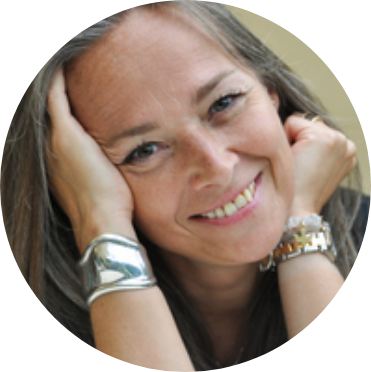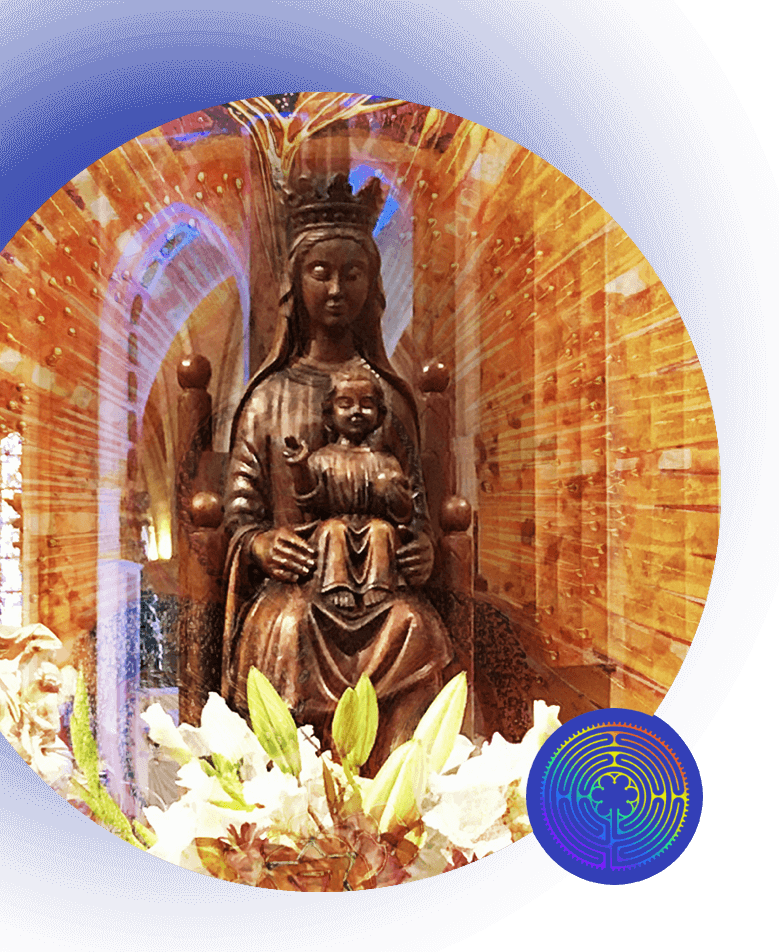
Chartres Academy
Madonna Rising: Mary Magdalene’s Path of Ascension
The Seventh Liberal Art of Astronomica
Format
In Person
Event
Next
August 13 - 19, 2026
Location
Chartres,
France
Faculty
Annine van der Meer, Banafsheh Sayyad, Andrew Harvey, Peggy Rubin
Credit
Bachelors – 4 credits Masters – 4 credits Doctoral – 4 credits
Available to the public
or for Academic Credit
Your Invitation by Jim to Chartres 2026
Join us in August 2026 to explore the highest of the Liberal Arts, Astronomica, and take a profound journey into sacred female realms.
This special event marks the completion of a seven-year cycle of pilgrimages to Chartres. Together, we’ll honour the end of this cycle during one of the holiest celebrations of the Mother of God.
Over six days, we’ll retreat into wisdom teachings, sacred movement, contemplation, dreamwork and community. The guest faculty this year is Annine van der Meer, renowned scholar and author of several books on the divine feminine.
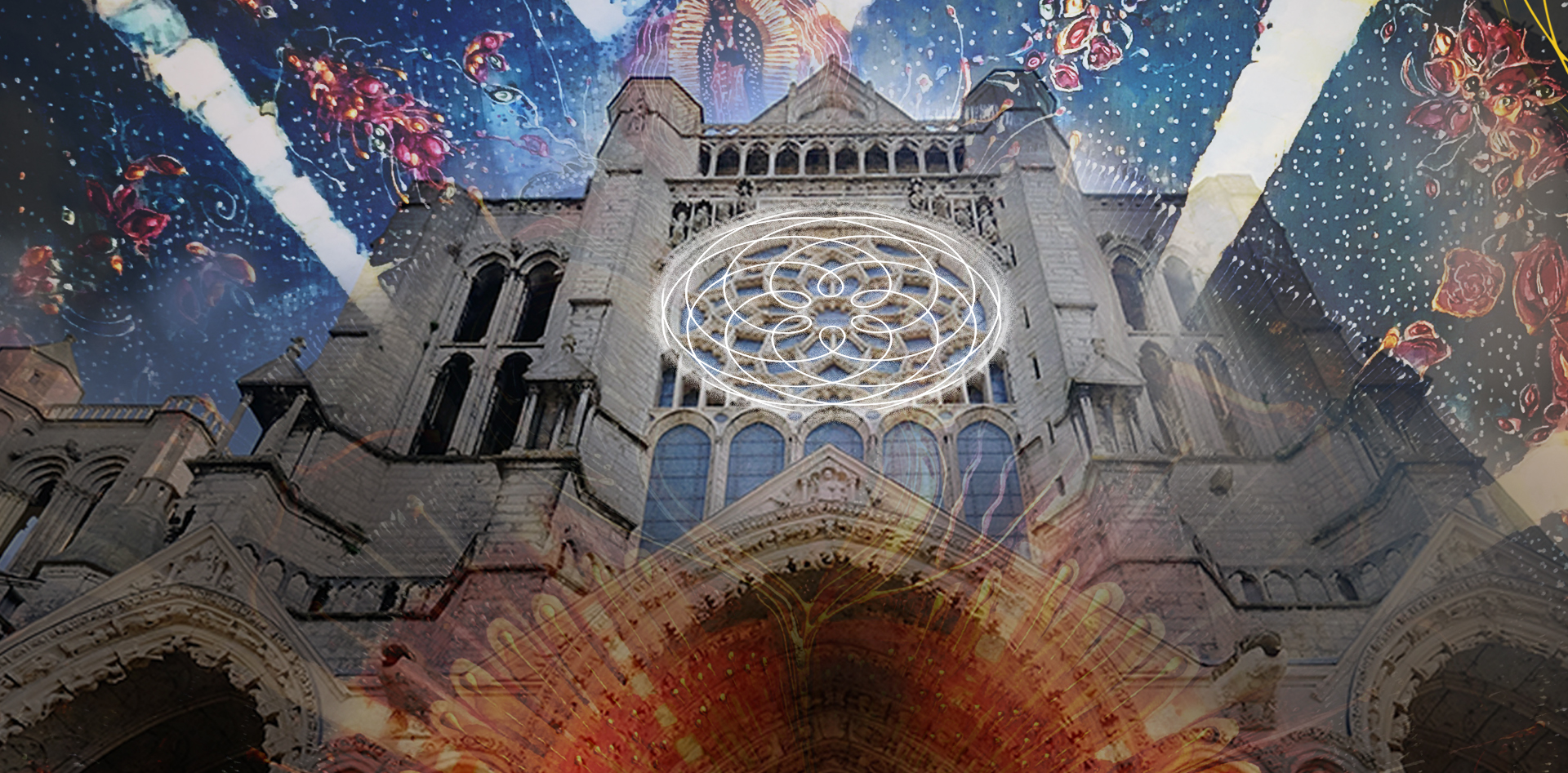
Overview
This pilgrimage will center us deeply in the heart of Chartres. We will be there on the Feast of the Assumption of Mary (August 15) which honors the Church doctrine, enunciated by the Pope in 1950, that Mary was assumed directly into heaven upon her death and now presides as the Mother of God.
Carl Jung believed that this doctrine, elevating the feminine into the Godhead, marked the most important development in Christian theology in the last 2000 years. Chartres, a city that has reverenced the feminine for several thousand years, honors the feminine in the deepest of ways.
On the Day of the Assumption, the Black Madonna is carried through the streets before being placed in front of the statue of the Assumption of Mary, where she is kept for one week, and then hidden away till the following year. Parading the Black Madonna recalls the way the Druids in ancient times brought her out of the grotto underneath the granite promontory upon which the cathedral today stands. They honored Mother Earth and the cycles of the seasons through the Black Madonna. Being in Chartres at this one time of the year will both deepen our Memory of ancient rites and activate our souls to a greater reverence for the Mother of God.
We will honor Mary Magdalene as a radiant manifestation of the Divine Feminine, intimately connected with both the Black Madonna and Mother Mary, embodying dynamism and infinite compassion. Rising into our time with clarity and force, she calls us to recognize her true role alongside Jesus as his beloved companion, wife, and co-teacher.
Once veiled by centuries of distortion, her story is now re-emerging through scripture, scholarship, and direct transmission—dreams, meditations, and visions that help us remember her, and in so doing, remember ourselves.
Known as “the woman who knew the All,” Mary Magdalene has been called many names—from repentant sinner to priestess of Isis, and above all, the most important teacher of the early Christian movement aside from Jesus himself. In following her path of ascension, we are invited to reclaim the fullness of the early Christian teachings and awaken to the wholeness she guides us into.

Mary Magdalene’s Path of Ascension
Recently uncovered ancient texts alongside modern sources allow us to glimpse a truer image of Mary Magdalene, far beyond conventional portrayals. Chief among them is The Gospel of the Beloved Companion, attributed to Mary herself and confirmed by reliable sources, offering a wealth of insight that restores her rightful place. Its closing vision describes her Ascension along the Great Tree Within, where she emerges as humanity’s Wayshower to the Light—a path we will follow together.
Her mission in France and England also connects with the many manifestations of the Black Madonna, both rooted in the timeless Wisdom tradition of the Dark Lady.
Annine van der Meer will lecture on Mary Magdalene as daughter of the ancient Wisdom tradition and Wayshower to the Light, while Banafsheh Sayyad will guide us in embodying the stages of Ascension along the Great Tree Within that Annine describes.
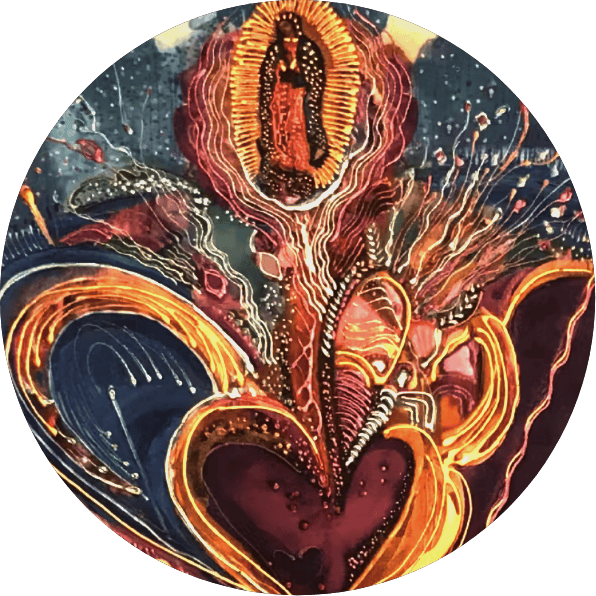
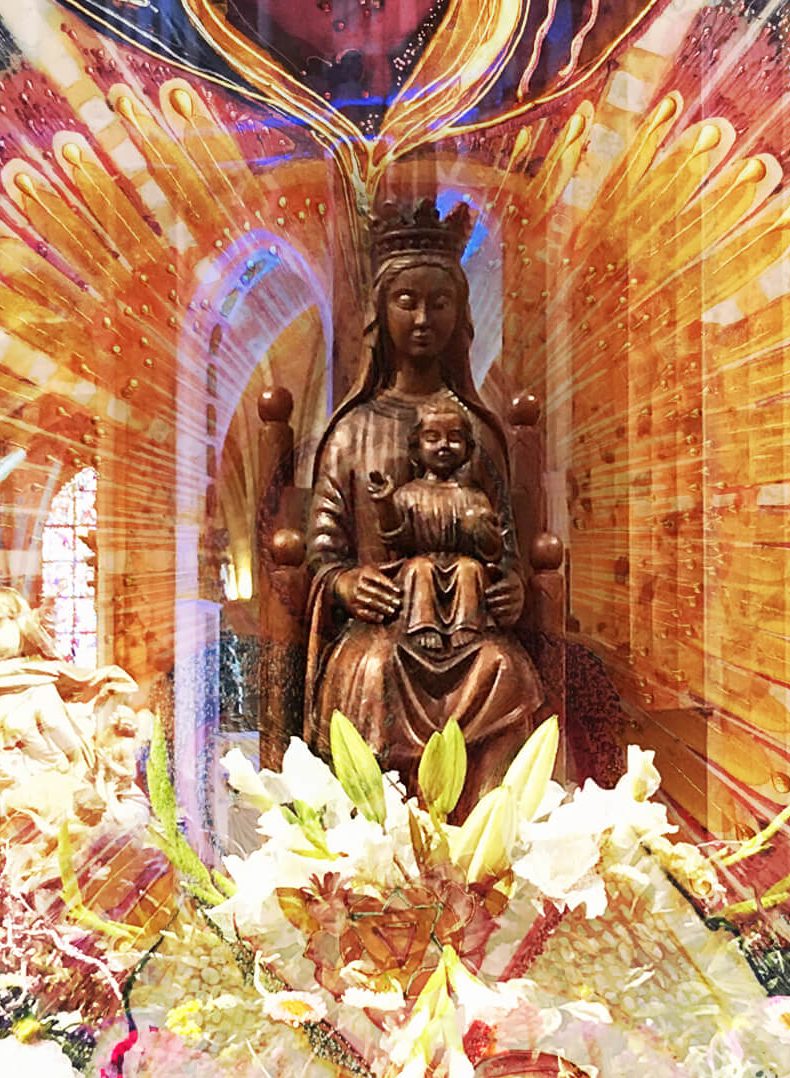
The Cosmic Dance of Astronomica
This year’s pilgrimage also marks our commemoration of Astronomica, the seventh and highest of the liberal arts. This liberal art invites us to contemplate the cosmos as a divine work of beauty.
Join us to explore the influence of the planets and stars on our psyches and destinies, as we seek to embody the sacred through reflective time in the cathedral, shared dreams, walking the labyrinth, and dancing the patterns & rhythms of the cosmos.
In studying the seventh and highest of the liberal arts in the light of the Assumption of Mary and Mary Magdalene’s ascension, one begins to contemplate the entire cosmos as a divine work, designed to express beauty. This is why Pythagoras called the universe cosmos, which means ornament. He intuited that the universe is in continuous song and that numbers and forms constitute its basic building blocks as it unfolds in pure beauty.
For the Chartrian Masters, the prism through which they understood the universe as cosmos was the study of astrology. Astrology, the oldest of the sciences, views the cosmos mirrored in each human soul, and regards all things and all beings as interconnected and mutually interactive. The movements and positions of the planets and the stars affect human beings. The cosmos represents the Macro, while human beings represent the Micro. We are interconnected. We are each other. We are stardust. Stardust is us. And we are in a continuous dance. As Plotinus said, “The entire universe breathes together.”
Through astronomy, we ascertain the laws which govern the heavenly bodies, and by which their motions are directed. Through astrology, we investigate their archetypal characteristics and seek to discern their influence upon our psyche and destinies.
Faculty
Calen Rayne
MFA, DMin
Director of Organizational Architecture and Energetics for Ubiquity
Banafsheh Sayyad MFA,MA
Sacred Dancer, Choreographer, and Co-Director of the Ubiquity Chartres Academy
Tony Khalife
Singer & Multi-instrumentalist,
Ubiquity Chartres Academy Music Director
Daily Program
Each day will include Dreamwork, an opening symposium, a presentation on the teachings of Mary Magdalene, sacred dance, music and theater, and personal time for meditation and exploration. We will have one private evening in the Cathedral where we will walk the labyrinth in ceremony.
Ubiquity Chartres Academy builds upon and reinterprets the original Chartres Academy founded by Fulbert in 1006 when he became bishop of Chartres. Fulbert called his school the Academy to indicate that he was in the lineage of Plato’s Academy founded in 387 B.C in Athens. We at Ubiquity University are privileged to be in this lineage and to count Fulbert and Plato among the giants upon whose shoulders we sit.
Our Chartres Academy is intended as a gathering point for a contemporary wisdom community to come together through the very same learning system that Fulbert and Plato used — the seven Liberal Arts. The Liberal Arts were initially refined by the Greek philosopher Pythagoras, who organized the first four, called the Quadrivium, comprised of music, mathematics, geometry and astronomy. Plato learned the Quadrivium from Pythagoras and with Aristotle developed the Trivium of grammar, rhetoric and logic. Together, they form the seven Liberal Arts.
The Importance of Pilgrimage
In the fast pace of modern life, the idea of spiritual solace may seem indulgent or beyond our limitations, but at Ubiquity we know that the opposite is true. Pilgrimage is a necessary component of an awakened life. The challenges of our world require spiritual inquiry, a committed community and immersion in the divine feminine.
This event is open to everyone, and each year sees new communities formed, new ideas birthed, and lifelong friendships kindled. It is overwhelmingly described as life-changing by the people who attend.
Dreamwork
A significant part of our Chartres program is dreamwork. Over the years, students have dreamt powerful and often prescient dreams. Each year they have expressed our collective soul. Led by Margot Borden, the community gathers every morning to report on their dreams and to discern their deeper meaning.
Community Webinars
Join the faculty and participants in a monthly webinar on the second Sunday of the month for discussions on the topics included in the intensive. Register for the Webinars.
Our journey will include:
- Lectures by Annine van der Meer, Andrew Harvey, Jim Garrison and Calen Rayne
- Sacred movement and dance with Banafsheh Sayyad
- Sacred Theater with Peggy Rubin
- Music with Tony Khalife
- Ceremony and ritual led by HeatherAsh Amara
- Morning dream circles led by Margot Borden
- Dancing, singing and ceremony to create sacred space
- Experiencing the festivities in Chartres around the Feast of the Assumption of Mary
- A private evening in the cathedral devoted to ceremony in the labyrinth, accompanied by music
- Personal time for meditation and exploration, enjoying the marvelous cafes and restaurants around the Cathedral with old and new friends, and the most extraordinary light shows around the town of Chartres at night.
- Ample discussion time to integrate the material being presented
About the Lineage of the Ubiquity Chartres Academy
The Liberal Arts were designed by these great thinkers as initiatory rites into the deepest truths about the universe, with each Liberal Art describing a certain essential element of the larger whole and designed to prepare the students for both professional skills and spiritual awareness. The goal for both students and teachers was to participate in an alchemical process of transformation leading to a deeper understanding of God and the universe, manifested as an active compassionate life in the community.
Building on this foundation, the Seven Liberal Arts were brought to their highest expression by the Chartres Academy during the eleventh and twelfth centuries. The seven arts also shaped the education refined during the Renaissance and gave rise to our modern “liberal arts” education, although education today has long lost the deep spiritual aspects of the original liberal arts. This is what the academies of Plato, then Fulbert, sought to instill, and that now our Ubiquity Chartres Academy seeks to recover and utilize as a transformational tool for what Plato called “the enlargement of the soul.”
What makes the Ubiquity Chartres Academy pilgrimage such a powerful experience is that it convenes in one of the most sacred sites in the world — the place which the ancient Druids, coming to the region over 3,500 years ago, considered the most sacred site in all of Europe, full of feminine energy. Each year, the entire Celtic tribe would convene in Chartres, called their vatican, meaning “the seat.”
This is the site where the cathedral now stands. Chartres has been a focal point for the veneration of the Divine Feminine and a center for the mysteries of healing and birth for thousands of years, and has been considered sacred from the earliest of times. This veneration was memorialized in stone and glass.


Required Reading for Students taking course for credit
Annine van den Meer, Magdalene’s Ascension;
Andrew Harvey, Magdalene Revolution,
Banafsheh Sayyad, Dance of Oneness.
The Beloved Companion, edited by Jehanne DeQuillan
End of course essay regarding the learnings in this course using APA style.
- For BA students – 6-9 pages in length
- For MA students – 10-15 pages in length
- For PhD students – 20-25 pages in length
All papers must be written to the APA standard and demonstrate the “subject/object synthesis” — we want students to demonstrate command of the content of the course, and we want students to demonstrate how they have been affected by what they have learned, how the content has informed their spiritual or personal development. We welcome all forms of artistic expression as part of the student’s paper.
Madonna Rising Mary Magdalene’s Path of Ascension
The Seventh Liberal Art of Astronomica
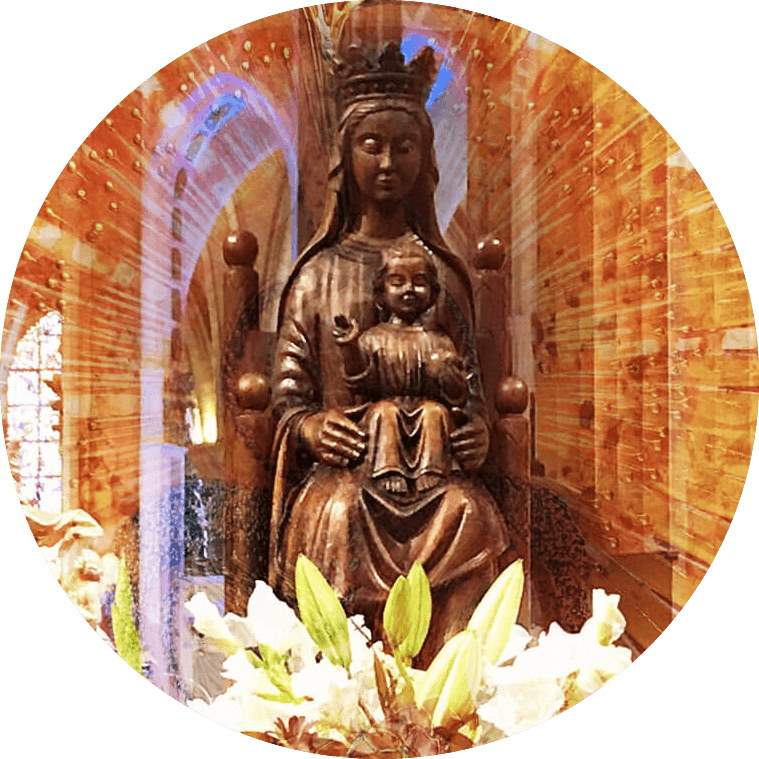
$2,297
Price includes registration only.
Lodging, transportation and meals not included.


